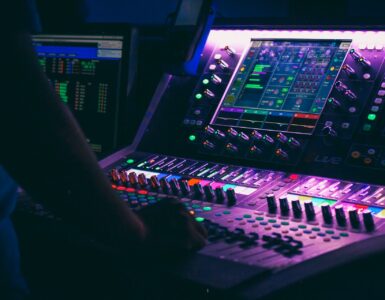Music, a pervasive force in our everyday lives, speaks directly to our emotions. It possesses the unique ability to evoke and amplify a wide range of feelings, from joy to sorrow. The way melodies and rhythms intertwine can trigger powerful emotional responses, shaping our mood and even our perceptions. For instance, a cheerful tune can lift our spirits, while a melancholic composition might resonate with our sadness, offering solace. This emotional resonance is not just limited to personal experiences but extends to shared, collective feelings, creating bonds and understanding among people from diverse backgrounds. By exploring various musical genres and their emotional impacts, this section delves into how music becomes a universal language, transcending cultural and linguistic barriers to touch our innermost feelings.
Enhancing Well-Being Through Music
Music’s influence extends beyond mere entertainment; it plays a significant role in enhancing our well-being. Listening to music can be a potent tool for stress relief, relaxation, and even healing. Studies have shown that certain types of music can lower blood pressure, reduce anxiety, and improve sleep quality. Moreover, music therapy has gained recognition as an effective approach to address various mental health issues, offering a non-verbal pathway for expression and communication. In this section, we examine the therapeutic benefits of music, discussing how different styles and tempos can affect our mental and physical health. We also look at how incorporating music into our daily routines, like during exercise or meditation, can boost our overall well-being and quality of life.
Music as a Catalyst for Productivity

The impact of music on productivity is a fascinating area of study. The right kind of music can enhance concentration, improve efficiency, and stimulate creativity. Whether it’s classical music boosting cognitive performance or upbeat tunes helping to energize and motivate, music can be a powerful ally in various work and study environments. This section explores how music influences our work habits and productivity. It delves into the science behind music’s effect on the brain, discussing how different genres and tempos can either aid or hinder our ability to focus and perform tasks. Practical tips on creating the perfect playlist for work or study will be provided, helping readers harness the power of music to maximize their productivity.
Fostering Cultural Connections and Understanding
Music acts as a bridge between cultures, fostering understanding and appreciation across diverse communities. It has the power to introduce us to different worldviews and traditions, broadening our horizons. Through music, we encounter the stories, histories, and emotions of people from various parts of the world, which can lead to a deeper appreciation of their cultures. This section will delve into the role of music in cultural exchange. It will discuss how music festivals, world music genres, and collaborative projects among artists from different backgrounds promote multicultural understanding and tolerance. This exploration will highlight music’s ability to unite people, demonstrating how shared musical experiences can break down barriers and foster a sense of global community.
Music in Everyday Settings: More Than Background Noise
Often, we encounter music as a subtle backdrop in our daily environments – in stores, elevators, or during commutes. However, this background music is more than mere ambiance; it influences our behavior, mood, and even our shopping decisions. This section investigates the strategic use of music in public and commercial spaces. It examines how different genres and tempos are selected to create specific atmospheres or encourage certain behaviors, such as increased consumer spending or relaxed dining experiences. By understanding the psychological effects of background music, we can appreciate the subtle yet significant impact it has on our everyday experiences.
Nurturing Personal Connections Through Shared Musical Experiences
Music has a unique way of strengthening personal bonds. Shared musical experiences, whether attending concerts, playing music together, or simply sharing playlists, can enhance our relationships. This section will explore how music becomes a medium for social interaction and connection. We’ll discuss how music can serve as a conversation starter, a way to express feelings, or a means to create lasting memories with friends and family. By examining the social aspects of music, this section will illustrate how it can deepen connections and foster a sense of belonging and community.
The Future of Music: Technological Advancements and New Trends
The evolution of music through technology has transformed how we create, share, and experience music. This section will look at the latest trends and advancements in the music industry, including streaming services, digital distribution, and AI-generated music. We’ll explore how these technologies are shaping the future of music, influencing artists’ creative processes, and changing the way audiences access and interact with music. This forward-looking perspective will provide insights into the potential future landscapes of music and its continued impact on our daily lives.














